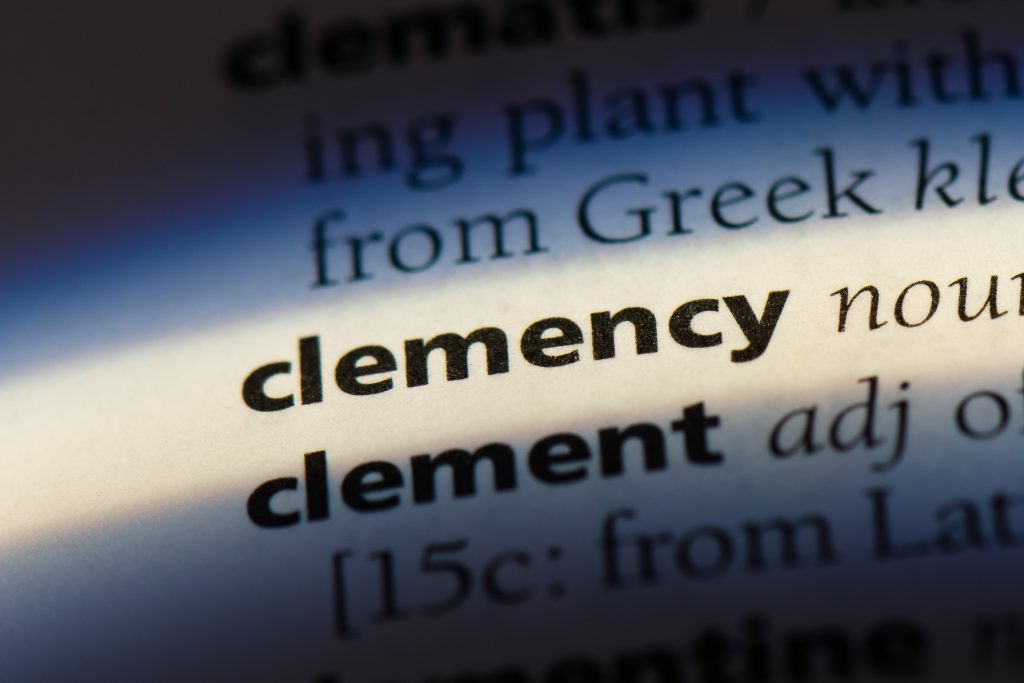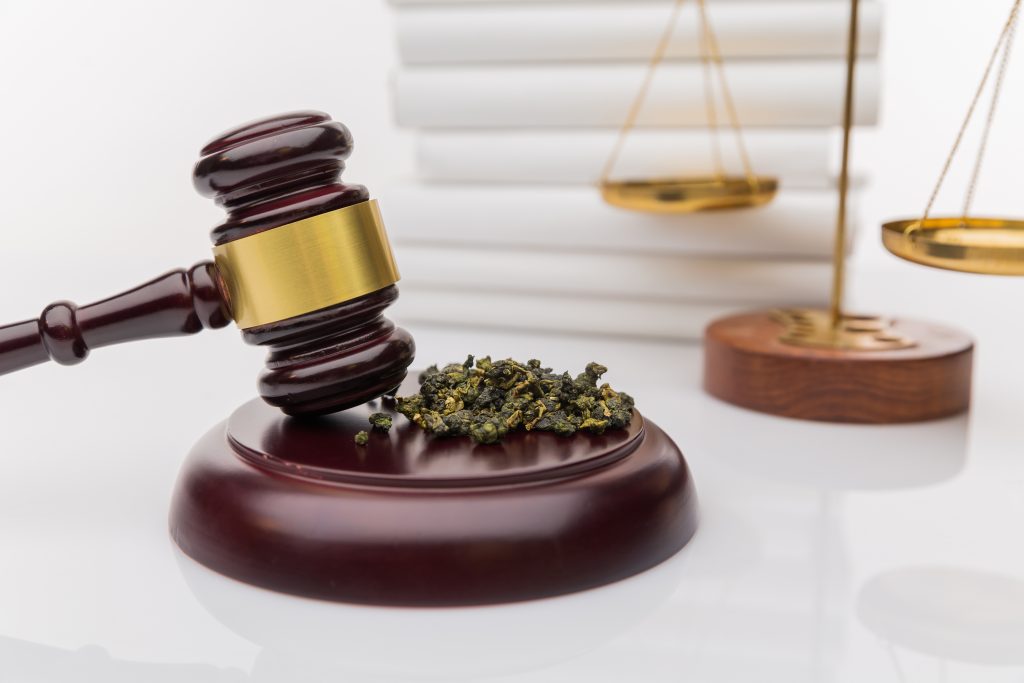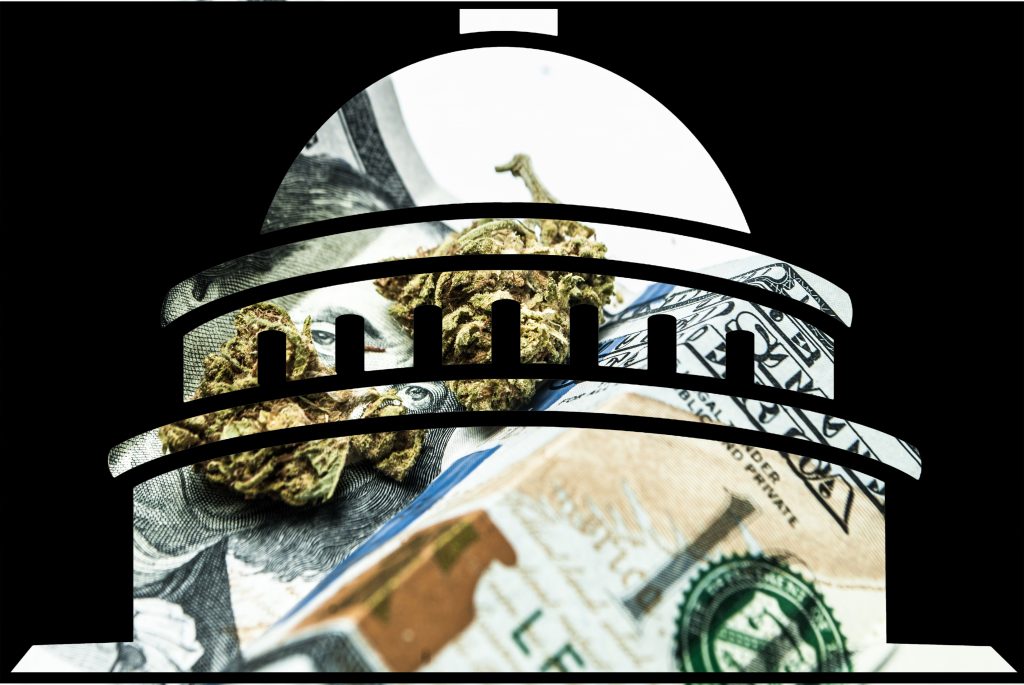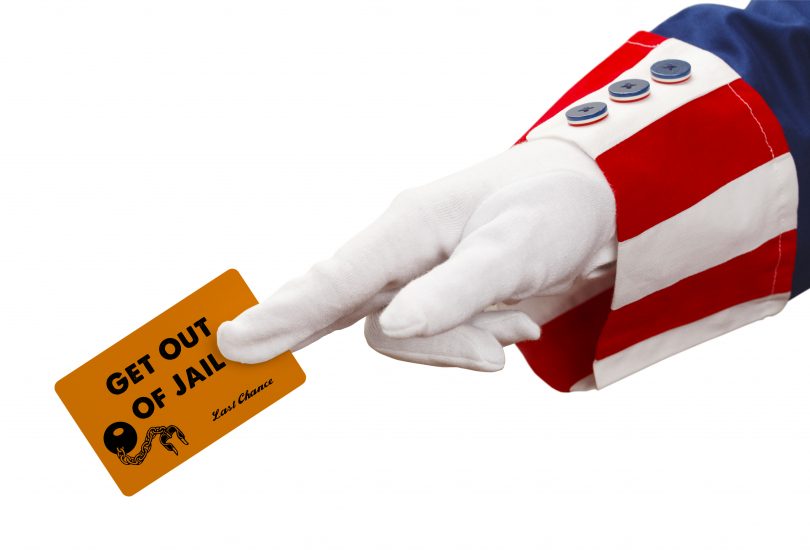Cannabis is still federally illegal on all fronts, and when this will change is unknown. However, Biden just pardoned a few cannabis offenders, for whatever that’s worth. This doesn’t mean cannabis is now magically legal, but considering the landscape, it seems likely that a legalization is coming soon enough. Here’s what happened.
Sure, it’s great Biden pardoned a few cannabis offenders, but we need way more than this for things to be right. Hopefully new legal policy will help out others in similar positions in the coming years. Welcome to our independent news publication. We focus on covering the cannabis and psychedelics industries of today. You can stay current by signing up for THC Weekly Newsletter, which will also net you access to deals on all kinds of cannabis products, including cannabinoid compounds like delta-8 THC. Please be advised, *cannabinoid products are not everyone’s first choice, and we do not promote the usage of a product that someone is uncomfortable with.
The news
On Tuesday, April 25th, it was reported that US president Joe Biden pardoned three people, and commuted the sentences of 75 more. The 75 were all offenders who were previously released to stay in their homes during the pandemic (a total of 8,300 federal inmates were granted this ability because of Covid). All of these pardons and commuted sentences relate to federal crimes only, and do not involve any convictions on a state level.
What’s the difference between a pardon and a commuted sentence? A pardon entirely deletes the conviction as if it never happened at all. While a commuted sentence means the conviction still stands, but that the punishment is lowered or revoked.
These pardons and commutations were done in clemency grants as a part of Biden’s first year of presidency. This is standard for all presidents and is done every year. Kind of like a presidential ‘get out of jail free’ card. This was not a specifically marijuana-related project, and the crimes that got pardoned and commuted range a number of different areas. However, it’s interesting to note that some of the people pardoned and commuted, were convicted of non-violent marijuana crimes.

Of the pardons given, one related to cannabis, and of the commuted sentences, eight were cannabis-related. This means out of 78 people that received clemency from the president, nine of them had cannabis violations. Is this actually good? Or does it show how easy it still is to be convicted for weed-related offenses, even as legalization policies spread across the States?
As per Biden, “Today, I am pardoning three people who have demonstrated their commitment to rehabilitation and are striving every day to give back and contribute to their communities. I am also commuting the sentences of 75 people who are serving long sentences for non-violent drug offenses, many of whom have been serving on home confinement during the COVID pandemic—and many of whom would have received a lower sentence if they were charged with the same offense today, thanks to the bipartisan First Step Act.”
How many people sit in jail because of marijuana?
According to a Uniform Crime Report by the FBI, which was released in October 2020, in 2019, there were more cannabis arrests than for all violent crimes combined. And this is indeed, correct. In 2019 there were approximately 10,085,207 arrests, and about 495,871 were for violent crime. That year, 1,558,862 people were arrested for drug-related crimes, with 36.3% of those for cannabis crimes. That equals 565,866 cannabis arrests, with the majority (32.1%) for possession.
2019 wasn’t that long ago, and when these arrests were happening, there were already at least 11 legalized states for recreational use, and over 30 for medical use. This is recent history and it still paints a very bad picture in terms of how cannabis users are treated, despite a growing understanding of how benign the drug is. If it was just about arrest numbers with no comparison, maybe it could slide, but the idea that more people faced consequences over a drug which is actually legal in parts of the country, than for crimes where the intention was to hurt another person, is mind-numbing.
Should we look a bit more recently? Let’s check data for the next year, 2020. By the time the FBI released statistics in September 2021, all 18 states currently legal for recreational use, had passed their bills. For that year, cannabis-related arrests amounted to 350,150. This is most definitely a decrease from the previous year, but let’s be honest, by this point, half the population was living in legalized locations. Of the 350,150, a whopping 91% (317,793), were for nothing more than possession.
It’s a little early for 2021 statistics, as they seem to get released around September. Chances are, no matter how much of a decrease, the numbers are still going to be uncomfortably high. The fact that such a large percentage are possession charges, indicates a desire to keep making these arrests. People who get convicted generally pay fines, and that so many are still being arrested despite the drug being legal for half the population, implies a desire to keep collecting those fines. Most of these people are not traffickers, and some of them likely got arrested for nothing more than a joint.

Biden pardoned cannabis offenders – is this progress?
There have been pardons for people convicted of marijuana crimes before, so there’s really nothing new about what happened. What is horrifying, is that Biden himself stated that he understood that many of the crimes he pardoned or commuted, wouldn’t receive the same sentence today. Which means the president of the country is aware that people are imprisoned and paying out for crimes which have already been decided don’t require such punishments. And yet he cherry-picked a few to be nice to, while letting the others continue with sentences he already stated they shouldn’t have. I see no progress here at all.
There are hundreds of thousands of active incarcerations, probations, and fines owed by those convicted. Does the pardoning or commuting of sentences for a total of nine people really mean much? Or is it just a ceremonial type of move, meant to get some positive press, and nothing else? Just looking at 2020 numbers, there were 350,150 cannabis arrests. But this number can be added onto those carrying out prison sentences, or actively on probation, from prior years. So nine? Doesn’t really seem like this is being taken seriously at all.
Now, if Biden made a move wherein all possession offenders were pardoned or had their sentences commuted, then there would be an obvious understanding of the horror of these persecutions, and the need to end this behavior. But that’s not what happened. If anything, Biden spoke about rehabilitation, as if these horrible weed offenders had somehow managed to find the light within their dark holes of substance abuse.
What’s the state of weed in the US?
The comical aspect to all this, is that half the population does live in locations with recreational legalization policies, where such possession charges literally can’t exist on a state level. That means that half the population is not required to follow federal mandate when it comes to cannabis. Of course, the federal government holds weed as illegal for all purposes, so its not just about the 18 recreational states (+ Washington DC), but also the now 37 states that allow medical use, whether as a full policy or just approved allowances. Considering that New York, California, Florida, and Texas, the four most populous states, all have some kind of cannabis allowance, means that the vast majority of the country now lives outside of federal law when it comes to weed.
That makes it far above half the population that lives in locations where local law permits some kind of use. And that means over half of the population is going against federal mandate. This leads to the question of just how many states would have to adopt policies of this nature, before the federal government’s laws would no longer have any value at all.
The federal government might not completely be at the point where it must throw its hands up in the air and admit defeat, but it’s close enough. So close that it’s now scrambling to pass a catch-up bill, since otherwise, as this whole thing moves in only one direction, it will eventually be left behind and completely powerless, at least on this subject. And it knows.

The MORE Act, which functions as both a decriminalization and legalization policy (in that it sets tax rates), just cleared the House in April, and is set to start its trudge through the Senate. And if this one fails, well, there’s another one that’s been semi-introduced, but not formally. The Cannabis Administration and Opportunity Act, is the baby of Senate majority leader Chuck Schumer, and he’s been showing it around to build support, but without introducing it and putting a timer on its passage. It should be formally introduced later this year.
To be fair, other cannabis bills have come and failed, but in previous times, over half the country wasn’t already living in opposition to the federal government. Even if both bills fail, one will go through soon, because one has to go through soon. One has to go through before the federal government starts getting called out in publications bigger than this one, for being weak, and not in control of its states. So, while Biden letting a few potheads off the hook is nice, it’s pathetic at best when considering the entire situation.
Conclusion
Headlines that Biden pardoned a few cannabis offenders have certainly gotten around, but the reality is a lot more morose. While the world of weed congratulates him for his efforts, it should be remembered that nine out of hundreds of thousands is not the progress that we’re looking for. Do better Mr. President!
Welcome all!! Thanks for dropping by CBDtesters.co/Cannadelics.com, your #1 option for independent news coverage of cannabis and psychedelics topics. Come to the site whenever possible to stay updated on the quickly-changing universe of cannabis and psychedelics, and subscribe to The THC Weekly Newsletter, so you’re never late on getting a story.







